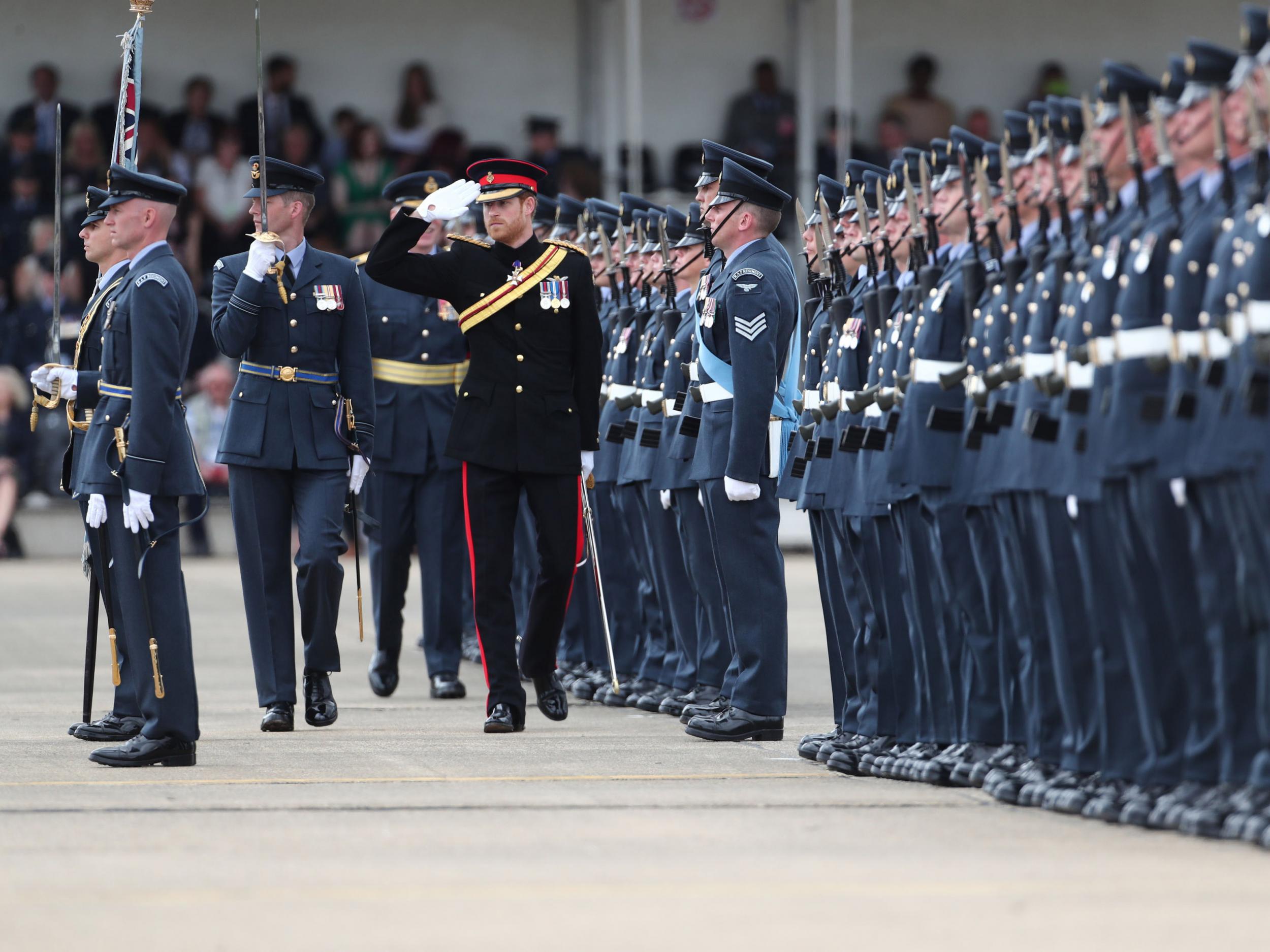RAF to open all roles to men and women in 'defining moment'
Defence Secretary Sir Michael Fallon says gender parity will lead to more effective military

Your support helps us to tell the story
From reproductive rights to climate change to Big Tech, The Independent is on the ground when the story is developing. Whether it's investigating the financials of Elon Musk's pro-Trump PAC or producing our latest documentary, 'The A Word', which shines a light on the American women fighting for reproductive rights, we know how important it is to parse out the facts from the messaging.
At such a critical moment in US history, we need reporters on the ground. Your donation allows us to keep sending journalists to speak to both sides of the story.
The Independent is trusted by Americans across the entire political spectrum. And unlike many other quality news outlets, we choose not to lock Americans out of our reporting and analysis with paywalls. We believe quality journalism should be available to everyone, paid for by those who can afford it.
Your support makes all the difference.The Royal Air Force (RAF) has become the first military service to open up all roles to men and women.
Women can now apply to join the RAF's ground-fighting force after the Government lifted the ban on females serving in close combat roles.
The 2,000 strong RAF Regiment is deployed to protect bases and airfields across the world, and has sustained casualties in Afghanistan.
Defence Secretary Sir Michael Fallon said the change would lead to a more effective military when he announced the move in July.
“Individuals who are capable of meeting the standards for the regiment will be given the opportunity to serve, regardless of their gender,” he said.
“This is a defining moment for the RAF.”
However Colonel Richard Kemp, a former commander of British forces in Afghanistan, said he was strongly opposed to plans to allow women to serve in the infantry from next year.
He told the BBC: “My concern is primarily in terms of physical capabilities and the effects that long-term stresses and strains of infantry training and operations will have on a woman's body.
“Once you have got through the selection, you then are subjecting yourself to a minimum of four years of intensive physical training day in and day out, which puts enough of a strain on a man's body.
“I think the reality is we will find many more women than men suffer injuries... and we will then undoubtedly see very significant compensation payments being made out of the defence budget.
“And the nature of woman's bodies means that some of the injuries are going to be more significant in terms of being able to bear children and the like.
“I am not a doctor, but I have certainly read up on this and that is a problem.”
But former British Army major Judith Webb argued women had been proven to be capable in such roles.
She said: “My concern has always been to ensure that research is carried out so that women know exactly what they are in line for.
“Being aware of our physical differences is an important aspect, but that is where I feel research has now been carried out.
“We want to promote diversity and get the best people, and if we have got women who want to do it, who are capable of doing it - then of course they should be able to do it.”
At present women make up 10% of the RAF.
PA
Join our commenting forum
Join thought-provoking conversations, follow other Independent readers and see their replies
Comments